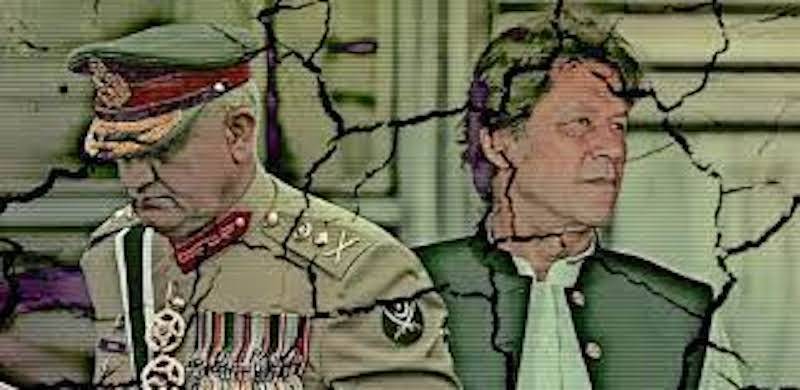
Director General Inter Services Public Relations (ISPR) Major General Babar Iftikhar, while addressing a press conference today, said that Chief of Army Staff General Qamar Javed Bajwa was asked by former prime minister Imran Khan to intervene and help resolve the political crisis.
"Our political leadership was unfortunately not willing to talk," he said, adding that the army chief and Director General Inter Services Intelligence (ISI) Lt Gen Nadeem Anjum went to the PM office [on Saturday night] where three scenarios were discussed.
One option, as per the DG ISPR, was to let the no-confidence motion take place as planned. The second and third options were for the PM to resign or retraction of the no-confidence motion and dissolution of assemblies.
General Babar Iftikhar went on to clarify that these options were not given from the 'establishment'.
On Saturday, voting on the no-confidence motion against erstwhile prime minister Imran Khan was to take place, but the then government tried its best to delay it. The voting finally took place after much ado at midnight, eventually leading to Imran Khan's ouster as the PM. Various news reports about what went down at the PM Office while the speaker and deputy speaker were using delaying tactics to derail the voting process have since been doing the rounds. The DG ISPR was thus asked a question in that context, to which he gave a detailed response. He also said that the military had nothing to do with politics.
Further, General Babar Iftikhar said that Chief of Army Staff General Qamar Javed Bajwa would retire after finishing his term in November this year, without accepting an extension in tenure. "The army chief is neither seeking an extension, nor will he accept it," he said.
In a wide-ranging press conference where he responded to reporters' questions in detail, General Babar Iftikhar denied the impression that the army chief's term would be extended, saying that the COAS was not seeking it either.
"Our political leadership was unfortunately not willing to talk," he said, adding that the army chief and Director General Inter Services Intelligence (ISI) Lt Gen Nadeem Anjum went to the PM office [on Saturday night] where three scenarios were discussed.
One option, as per the DG ISPR, was to let the no-confidence motion take place as planned. The second and third options were for the PM to resign or retraction of the no-confidence motion and dissolution of assemblies.
General Babar Iftikhar went on to clarify that these options were not given from the 'establishment'.
On Saturday, voting on the no-confidence motion against erstwhile prime minister Imran Khan was to take place, but the then government tried its best to delay it. The voting finally took place after much ado at midnight, eventually leading to Imran Khan's ouster as the PM. Various news reports about what went down at the PM Office while the speaker and deputy speaker were using delaying tactics to derail the voting process have since been doing the rounds. The DG ISPR was thus asked a question in that context, to which he gave a detailed response. He also said that the military had nothing to do with politics.
Further, General Babar Iftikhar said that Chief of Army Staff General Qamar Javed Bajwa would retire after finishing his term in November this year, without accepting an extension in tenure. "The army chief is neither seeking an extension, nor will he accept it," he said.
In a wide-ranging press conference where he responded to reporters' questions in detail, General Babar Iftikhar denied the impression that the army chief's term would be extended, saying that the COAS was not seeking it either.

